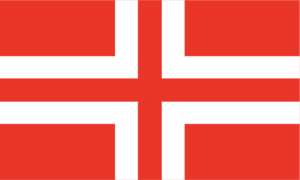Nationalist conservatism

Nationalist conservatism is the dominant political, social and cultural ideology in Great Nortend that makes a virtue of both nationalist and conservative values. Being the main general ideology of all three of the main political parties as well the de facto view of Royal family, nationalist conservative values are formally promoted by the Government as reflecting the ideal values of an Erbonian subject.
History
Nationalist conservatism arose as a distinct political theory during the 19th century in the face of the growing individualist liberalism promoted by the growing industrial sector, which upset traditional feudal social structures. This affected both the working class as well as the aristocracy, as the workers feared the loss of their ancient feudal rights and stability for unstable labour in factories, whilst the gentry feared the loss of their vassals and consequently, their local influence and thus national political power.
Ideology
Social
Erbonian nationalist conservatism is socially conservative, and promotes traditional family structures and social stability over personal rights and freedoms. The authority of the Crown over all is highlighted through a strong focus on law and order and symbolism of state power. Nationalist conservatism also recognises the established Church of Nortend as the embodiment of the Crown's spiritual powers, and thus generally incorporates Christian morality into its policies.
It also naturally has a nationalist slant which recognises that although there is a social hierarchy, all Erbonians are equally valuable as parts of the whole, being the nation. Hence, there is widespread support for social welfare for all Erbonians, principally achieved through the system of Public Alms administered by the Lord Almoner, although also encompassing programmes such as free board schooling. National cohesion is also promoted through widespread membership of national institutions, such as the Church of Nortend, the Home Service or the Cadet Corps.
Economic
Economically, nationalist conservatism varies between the two main political factions. Generally, however, the nationalist view promotes protectionism and self-sufficiency necessitating a highly regulated or planned economy. On the other hand, the more conservative view takes a centrist view, advocating for a market economy. In practice, Erbonian parties have generally taken a blend of these two views, promoting a neo-mercantilist mixed economy where economic growth is not necessarily actively desired. One of the major effects of the adoption of these policies is that net inflation has been maintained at 0% since the start of the 20th century, which has led to the pound marten being one of the highest valued currencies in Astyria.
This page is written in Erbonian English, which has its own spelling conventions (colour, travelled, centre, realise, instal, sobre, shew, artefact), and some terms that are used in it may be different or absent from other varieties of English. |
